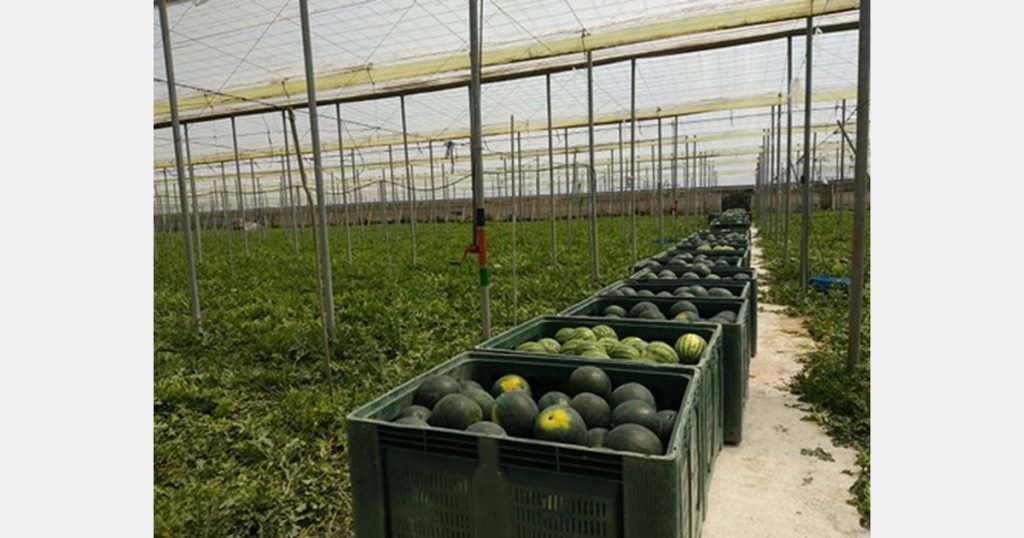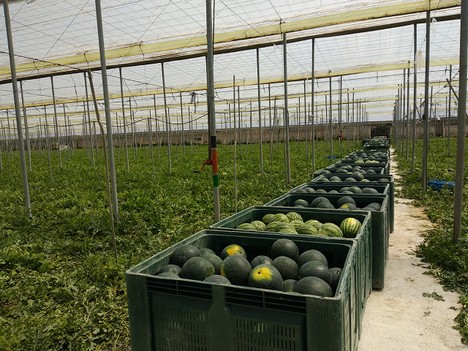This week, melon and watermelon prices recorded a sharp decline in Almeria, as reported by Asaja-Almeria. According to the agricultural organization, the price of both fruits has fallen by up to more than 30% this week, depending on the variety.
Black seedless watermelons have seen their price fall by 33%, and the striped one has become 14% cheaper, bringing prices to an unacceptable level for this time of the year. In the case of seedless watermelons, the average for May over the last 6-7 years amounts to around 40 cents, and that of the striped to 36 cents. “We are therefore already selling for prices well below the usual,” says the organization.
The situation is very similar for melons. In the case of the Galia, prices stand 22% below the month’s usual average. This week, the price reached just 26 cents. This situation is also affecting yellow melons, whose average price stands at just 23 cents. This is 25% less than last week and 31% less than the usual average for May. Meanwhile, the price of the Piel de Sapo, which had stayed at a decent level until this week, has fallen by 45% earlier this week, when it already stood at around 36 cents.
Asaja once again lamented that agricultural producers are the ones suffering due, among other factors, to the lack of proper crisis management to react or cope with such situations, as well as to a lack of planning, since this could have been predicted in January, when the harvest of much of the watermelon plantations was postponed to late May to avoid competitors such as Senegal or Morocco.
Asaja also warns of abusive practices; of prices being brought down taking advantage of the uncertainty among the producers. In this context, the organization recalled the mandatory nature of contracts. “We will ask the AICA to investigate whether any irregularity is occurring and to punish any violators taking advantage of a situation that seems fabricated,” they said.
Therefore, in the next sectoral meeting with the Ministry of Agriculture, Asaja will demand the urgent implementation and application of the reform of the Chain Law. After all, this should prevent sales below cost and avoid abuse on the growers. Indeed, without such a law, speculation can always take place, given the perishable nature of the products.
Source: diariodealmeria.es



